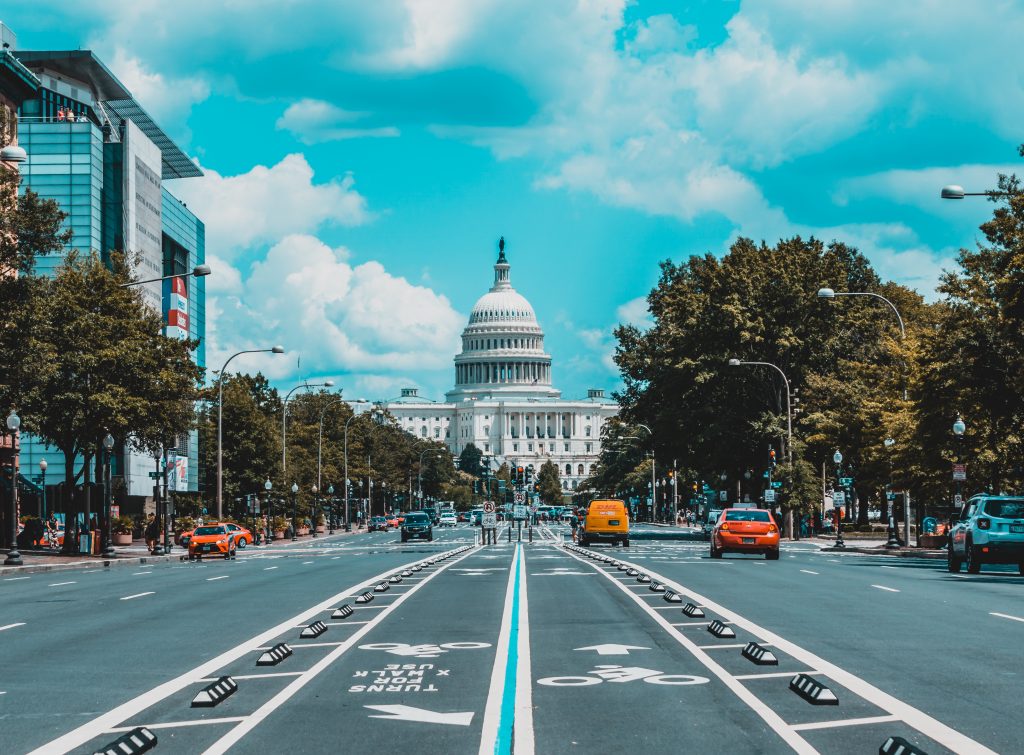 (More young reps could be commuting to the Capitol soon. Photo by Jorge Alcala on Unsplash)
(More young reps could be commuting to the Capitol soon. Photo by Jorge Alcala on Unsplash)

Today, the average American is 20 years younger than their representative.
That hasn’t always been the case. In fact, Congress used to be much younger than it is now. Like, back in the 1800s, over 60 members served in their 20’s.
But the current Congress is the oldest it’s ever been.

If the primaries are any hint, this could change in 2018.
Alexandria Ocasio-Cortez, a 28-year-old Democratic socialist, beat out a representative who’d served 10 terms in New York’s primary election on June 26, securing her place on a ballot in November midterm congressional elections.
It was a shocking upset for Ocasio-Cortez, a Latina who was running in her first campaign ever. She ousted longtime Rep. Joe Crowley, 56, who was even said to be the potential future speaker of the house. Ocasio-Cortez still has to face a Republican challenger in November, but she’s expected to win — and become the youngest sitting member.
That informal title is currently held by Elise Stefanik (R-NY), who was 30 when she was elected in 2015. Stefanik was also the youngest woman ever elected to Congress, but if Ocasio-Cortez wins in November, she’ll claim that title too.
The 115th Congress is, according to average, the oldest in recent history. The average age of House of Representatives members: 57.8 years.

The last time a 20-something held a seat in Congress was in 2013, when 29-year-old Patrick Murphy (D-FL) was elected. Before that, it had been more than 10 years, when Adam Putnam (R-FL) was elected at age 26 in 2002 (he was 27 when he started his term).
This cycle, there are 22 congresspeople under the age of 40. In the 114th Congress, from 2015-2017, there were 34 members under 40, and before that from 2013-2015 in the 113th Congress there were about 36 members under the age of 40. So the number of young people in the House has been steadily shrinking.
Then came the primaries for the 2018 midterm elections.
Politico reported in May that at least 20 Millennial Democratic candidates were running in battleground districts in this year’s primaries, an increase over previous cycles.
And like Ocasio-Cortez shows, this can change. Although primary elections have already wrapped in 32 states from May-June, there are 20 more slated throughout August and September.
Before Ocasio-Cortez, young candidates had a few other wins:
- Conor Lamb, a 33-year-old Democrat, won a special election in March for a House seat in western Pennsylvania.
- Also in March, 31-year-old Democrat Lauren Underwood won her district’s primary in Illinois for a place on the ballot in November.
- Democrat Abby Finkenauer, 29, won a June 5 primary in Iowa.
- Aftab Pureval, a 35-year-old Democrat from Ohio, also won his primary.
Here are a few other young candidates to watch who could end up on a midterm election ballot come November, depending on what happens in their primary elections through the summer:
Arizona
Yahya Yuksel, 27, Democrat
Democrat Billy Kovacs, 30, Democrat
Hawaii
Beth Fukomoto, 35, Republican
Kanilo Saito, 28, Democrat
Kansas
Sharice Davids, 38, Democrat
Brent Welder, 37, Democrat
Laura Lombard, 33, Democrat
Michigan
Cooper Nye, 25, independent
Minnesota
Brian Santa Maria, 38, Democrat
Note: Data for the two charts comes from the Congressional Research Service.